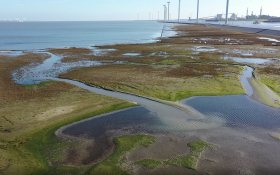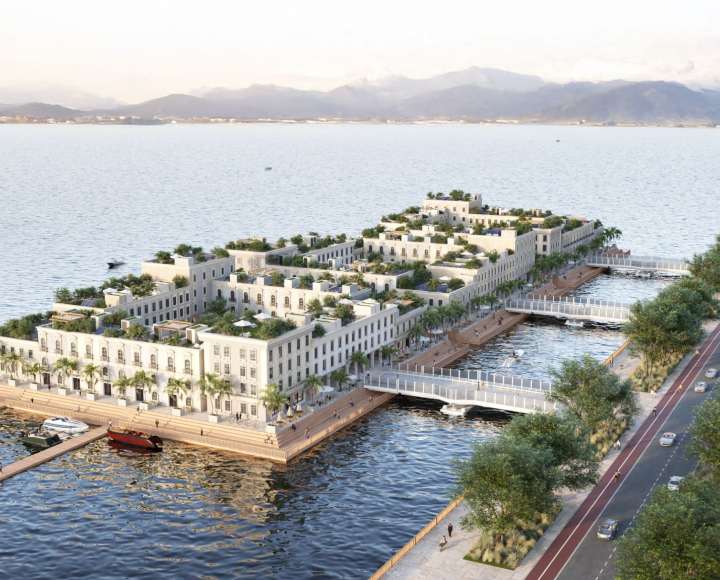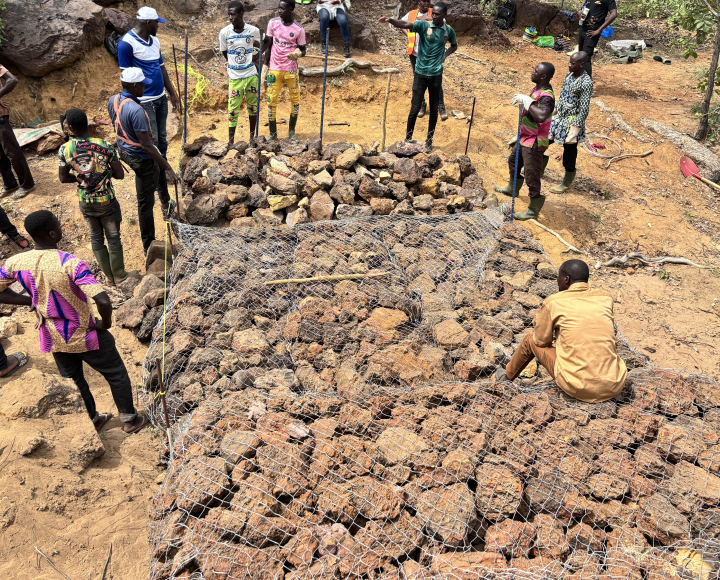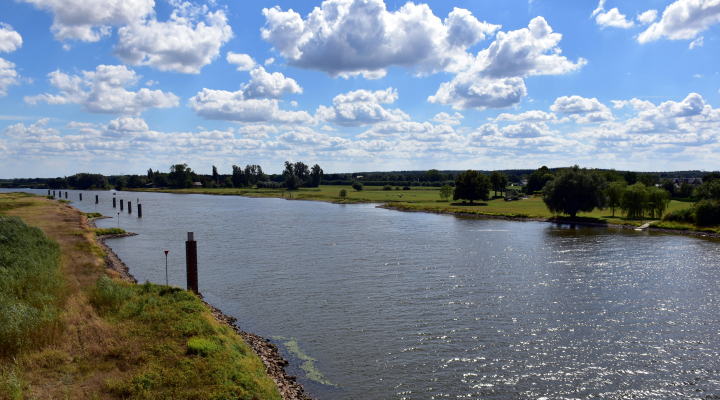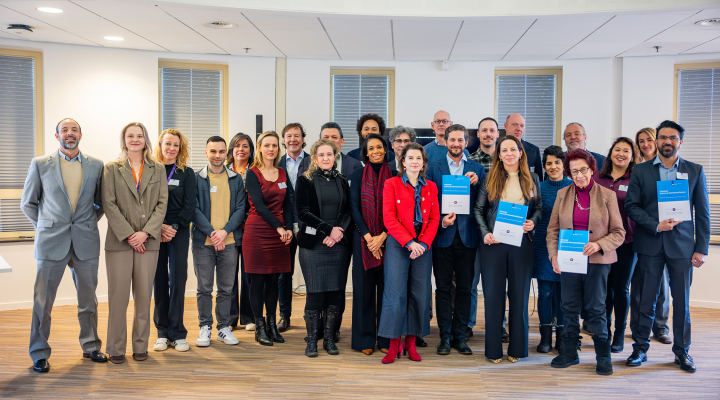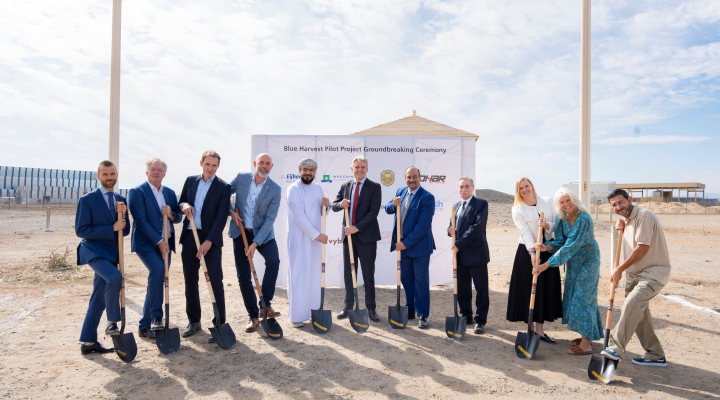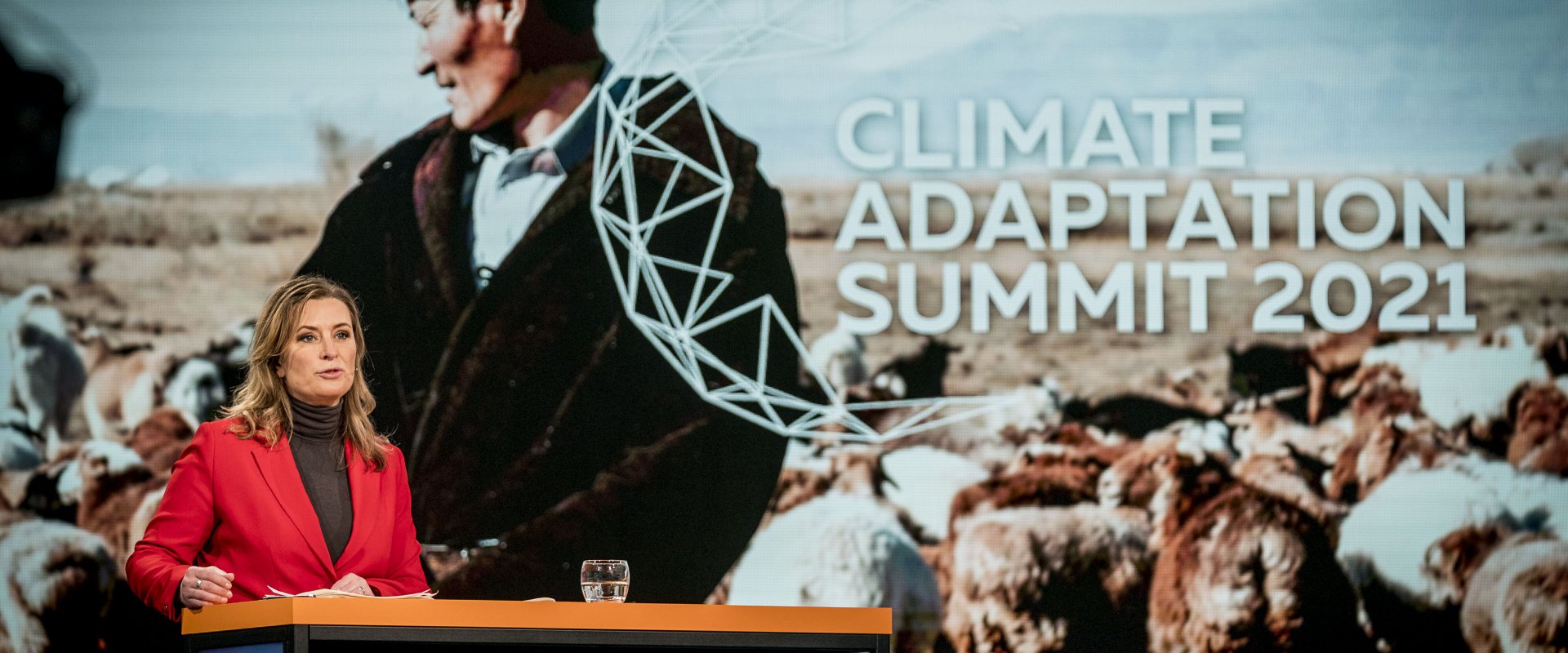
CAS2021: Wrap up of summit that sets ambition for a resilient future
Over 50 world leaders addressed the virtual Climate adaptation summit and urged for more action to reduce the damages that are already eminent from climate change, such as floods, droughts, heath waves and wildfires. Their pleas supported the ambition set out by the Global Centre on Adaptation to achieve a resilient world by 2030.
A wrap up of the live broadcasted summit that took place on 25 and 26 January was attended by 18.000 registered visitors.


Financial announcement
An important goal of the summit, hosted by the Dutch Ministry of Infrastructure & Water Management, was to raise more awareness for the already occurring effects of climate change and to boost innovative solutions to scale. Development bank offices worldwide announced their support for GCA’s action agenda and promised to put climate adaptation higher on their agenda.
The most tangible was the announcement of the two large scale adaptation projects that can count on financial support from the African Development Bank.


Scaling adaptation in Africa
‘Let’s turn words into action’, said AfDB president Akinwumi Adesina. He added that the bank would increase its climate financing by 400 percent, rising from 38 percent of its total financing in 2019, stating that Africa needed collective actions to take the climate fight seriously and adapt to ecological changes.
Adesina mentioned two large adaptation projects in particular. His bank is shouldering the 20 billion US dollar Great Green Wall Initiative, an African-led flagship project to grow an 8,000 km nature corridor through 11 African countries across the entire width of Africa. The other project he mentioned was the Digital Agriculture Flagship that is to leverage 2 billion US dollars to deliver digital climate advisory services to reach 300 million farmers by 2030.
The International Monetary Fund (IMF) announced the integration of climate risks into its annual country economic assessments, focusing in particular on adaptation in highly vulnerable nations. Managing director Kristalina Georgieva offered assistance to finance ministries and central banks with the skills needed to take climate considerations into account.
The World Bank Group will earmark at least 50 percent of its climate funding to adaptation. World Bank Group president David Malpass announced a 5 billion US dollar investment in the Great Green Wall.
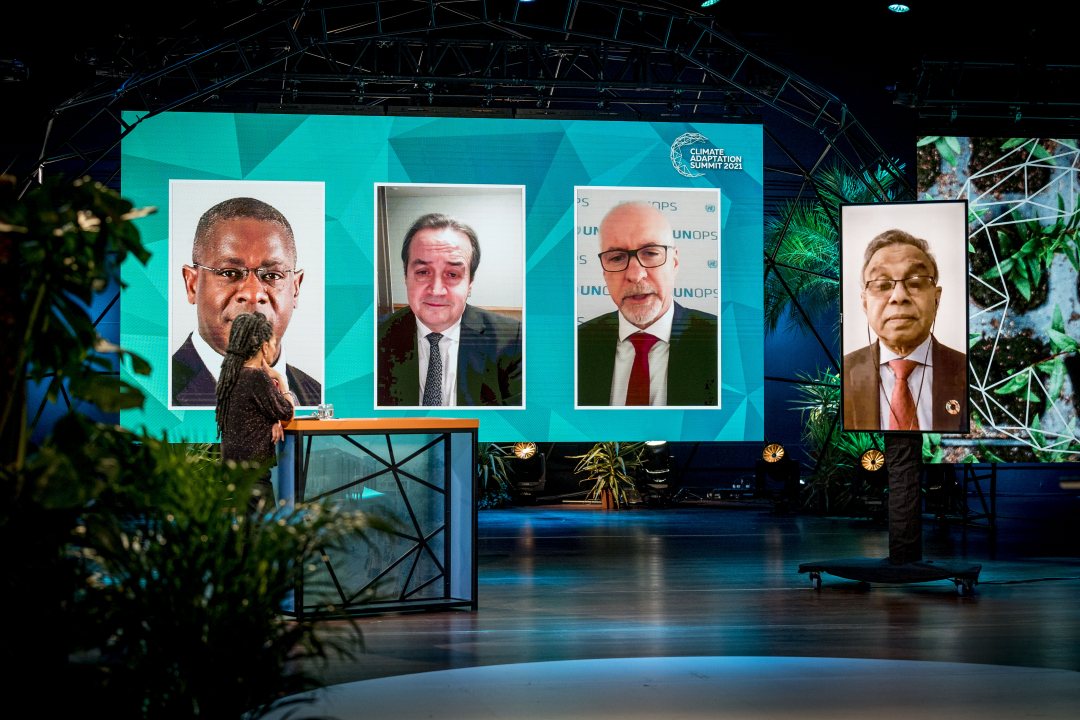

Future proof infrastructure
Rick O’Regan, UN Office for project services, addressed the issue of a new standard for resilient infrastructure. ‘We need infrastructure that can adapt and scale to the changing context. We face an uncertain future impacted by changing climate and pandemics’, O’Regan said. ‘Yet, our world’s infrastructure is too often unequipped to deal with crises because we took too narrow a view in its purpose and design’.
O’Regan mentioned the unprecedented demand for more infrastructure and the limited finance to meet that demand. ‘We cannot afford to get it wrong but we do have a unique opportunity to get it right if we act now. We should not view infrastructure as individual buildings or networks but as part of a system that can deliver on our global needs’. Instead, he suggested, nations should introduce a planning based on a new relationship between infrastructure and the natural environment. He suggested to accommodate all relevant perspectives in decisions on infrastructure, including the shocks that it will be subjected to in the future.
The UNOPS is involved, together with the Global Centre on Adaptation, in a study in Ghana on the impact of climate change on Ghana’s infrastructure development. This study is a start to enhance the resilience of the national infrastructural systems by developing a roadmap of evidence-based projects and policies in the energy, water and transport sector, as well as other societal issues such as greenhouse gas emissions and equity.
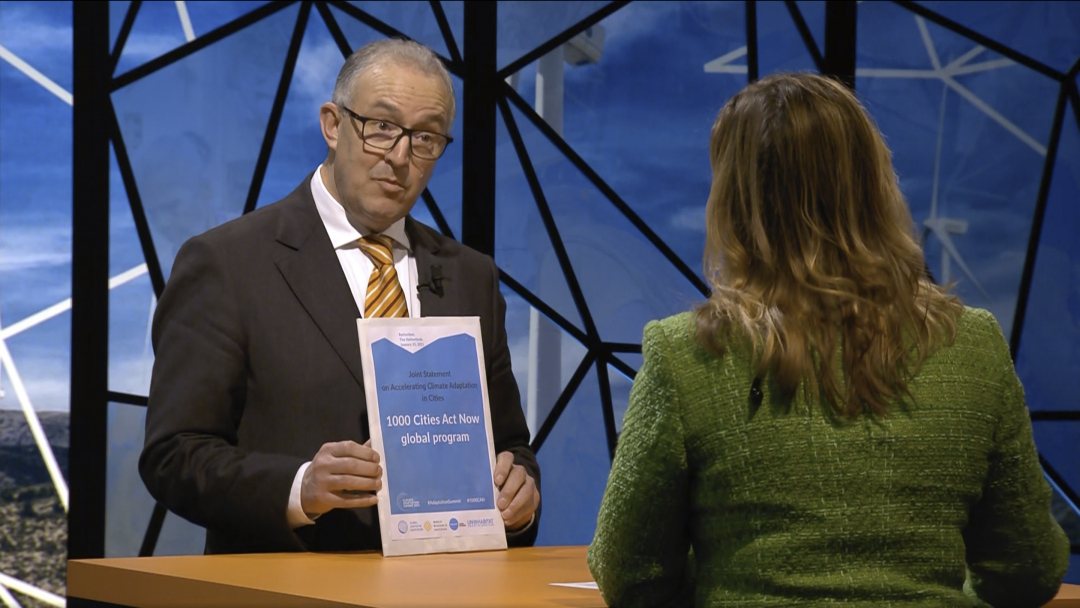

Resilient Cities
At the Climate Adaptation Summit, the '1000 Cities Adapt Now (1000CAN)' global program was announced by Mayor Aboutaleb of Rotterdam, on behalf of global cities and a new coalition of partners. This program will be helping 1000 cities adapt to climate change over the next ten years.
1000CAN is a joint effort of the Global Center on Adaptation, the World Resources Institute, Resilient Cities Network and UNHabitat. Implementation has already started in Accra (Ghana), and this will be upscaled to 100 cities in 2021‐2023, up to 300 by 2025 and finally to 1000 by 2030.


Water Adaptation Hub
The Water Action Track has launched a Water Adaptation Hub. This community aims to accelerate and scale up climate adaptation interventions globally bringing the water sector together and making the connection with other sectors. Acceleration of water adaptation will be achieved by building on and strengthening what is already happening and/or starting.
Scale‐up will be reached by connecting and actively brokering between stakeholders and initiatives. A collaborative effort with the goal to use the water sector as the key enabler in the worldwide climate change dialogue.





